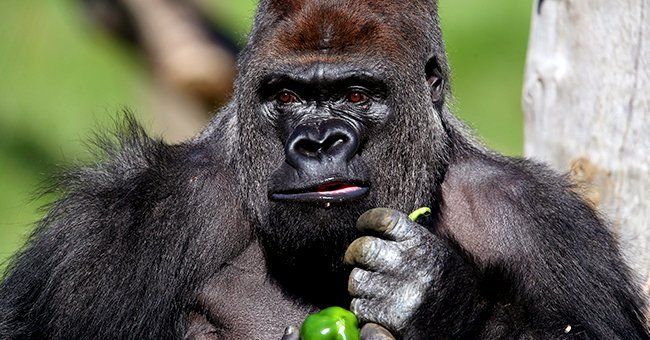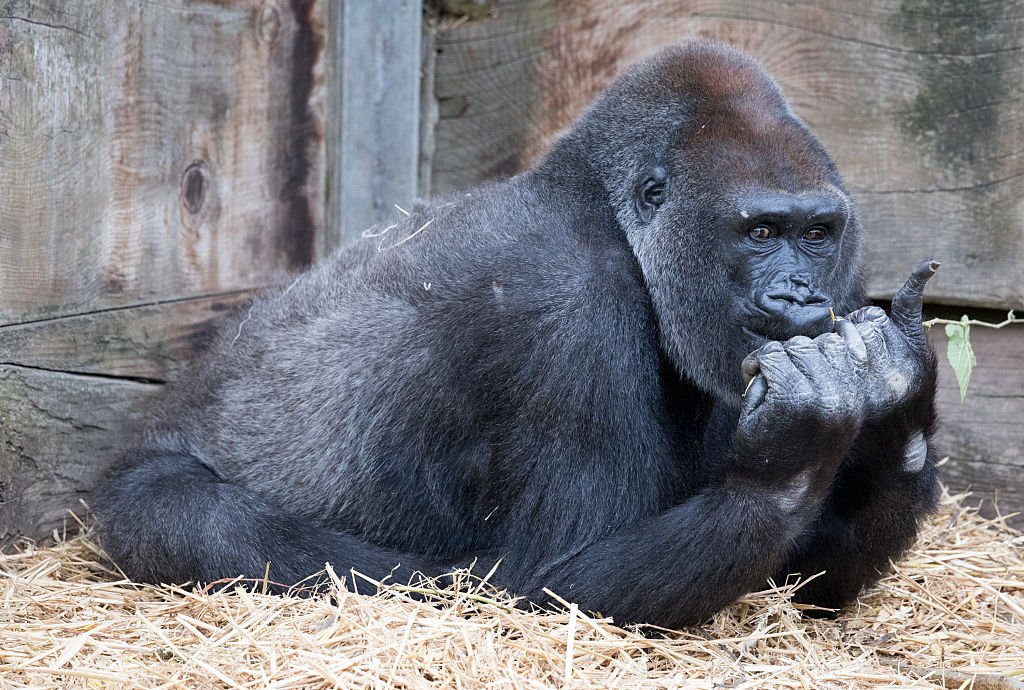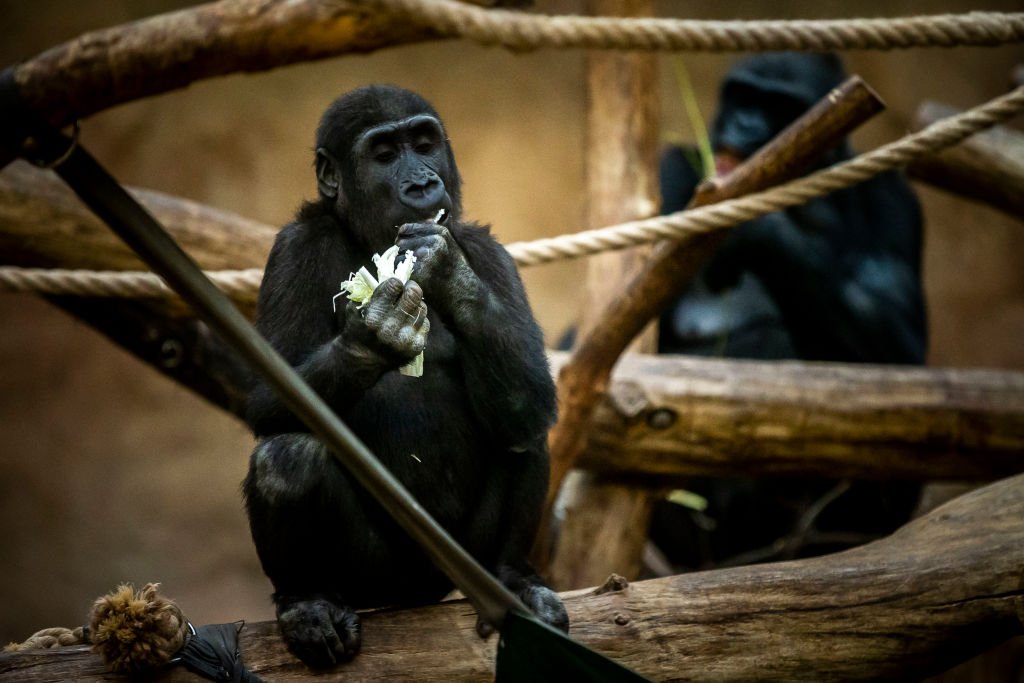
Gorillas at San Diego Zoo Test Positive for COVID-19
The San Diego Zoo and San Diego Zoo Safari Park have been temporarily shut down after a troop of gorillas tested positive for the novel Coronavirus.
As of January 6, 2021, the San Diego Zoo was announced as temporarily closed following the novel Coronavirus' detection among a troop of gorillas. They were said to have been constantly coughing.
When the COVID-19 tests were eventually carried out by the California Animal Health and Food Laboratory System through the primates’ feces, it was discovered that the animals were positive for the virus.

An adult gorilla looks out from 'Gorilla Island' that is shared with Afia the newest baby gorilla at Bristol Zoo on August 10, 2016 | Photo: Getty Images
Some of the gorillas were confirmed to be positive but the possibility that the other population of gorillas could be infected has not been ruled out. Lisa Peterson, the executive director of the San Diego Zoo Safari Park said:
“Aside from some congestion and coughing, the gorillas are doing well. The troop remains quarantined together and are eating and drinking…”
Speculations show that the animals got infected due to possible contact with an asymptomatic staff member, regardless of the fact that all precautions were taken towards avoiding COVID-19 among the animals.
In October last year, there was a rare occurence in the world of gorillas.
Peterson went on to talk about how the staff members and work team worked tirelessly around the clock through last year to avoid getting the animals infected, while also protecting the staff members.
The zoo experts also confirmed that the infected gorillas have been kept under close watch. Due to the fact that their symptoms are mild, the caregiver noted that they were not applying treatment on the animals.
However, veterinary experts have been alerted in case there is a turn of events. In the Facebook post shared, the Zoo management beckoned on the general public to keep the infected primates in their thoughts.
The Zoo executive shared that it was best to leave the gorillas together as a troop, going through their daily lives as they did before, despite being on close watch.
The gorillas are the first known non-human primate who got infected with COVID-19. Before the development, other animals like the mink, snow leopards, lions, and tigers were said to have been infected.
In October last year, there was a rare occurence in the world of gorillas when one of the primates known as Kiki, a female gorilla at the Franklin Park Zoo in Boston had her baby via C-section.

A gorilla feeds on vegetables at Prague Zoo on November 10, 2020 | Photo: Getty Images
Although gorillas usually experienced easier birthing due to their large pelvis, the placenta was not properly positioned in Kiki’s case, thereby preventing virginal birth. The Caesarean section had both mother and offspring certified healthy.
